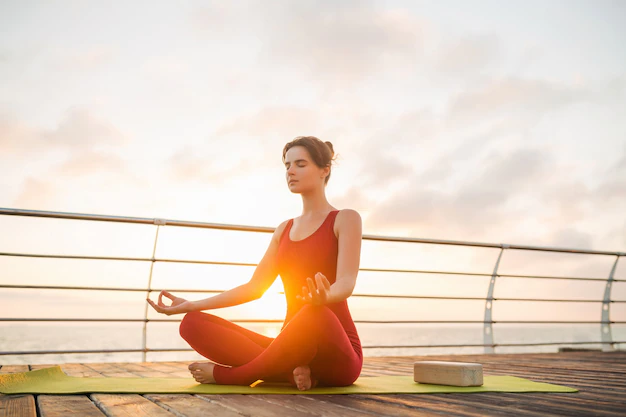Yoga for Scoliosis

Scoliosis is a medical condition that causes a sideways curvature of the spine. While scoliosis can range from mild to severe, it often leads to back pain and limited mobility. Yoga is a low-impact form of exercise that can be helpful for people with scoliosis. It can help to stretch and strengthen the muscles in the back and abdomen, which can improve posture and reduce pain. Here are some yoga poses that can be beneficial for people with scoliosis:
- Mountain Pose: Stand with your feet hip-width apart, arms at your sides. Engage your abdominal muscles, lengthen your spine, and draw your shoulders down and back. This pose can help to improve posture and alignment.
- Downward-Facing Dog: Begin on your hands and knees, with your hands shoulder-width apart and your knees hip-width apart. Lift your hips up and back, straightening your arms and legs. This pose can help to stretch the muscles in the back, chest, and hamstrings.
- Cobra Pose: Lie on your stomach with your hands under your shoulders. Press your hands into the ground and lift your chest up, keeping your elbows close to your body. This pose can help to strengthen the muscles in the back and improve spinal flexibility.
- Half Lord of the Fishes Pose: Sit with your legs extended in front of you. Bend your right knee and place your foot on the floor outside your left thigh. Place your left elbow on the outside of your right knee and twist to the right, placing your right hand behind you. Repeat on the other side. This pose can help to stretch the muscles in the hips, back, and abdomen.
- Child’s Pose: Begin on your hands and knees, with your hands shoulder-width apart and your knees hip-width apart. Lower your hips back towards your heels and extend your arms forward. This pose can help to stretch the muscles in the back and neck.
It’s important to work with a yoga instructor who has experience working with people with scoliosis. They can help to modify poses to meet your individual needs and ensure that you are practicing safely. If you experience any pain or discomfort during yoga, stop and consult your healthcare provider.
